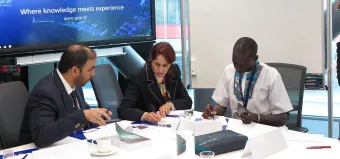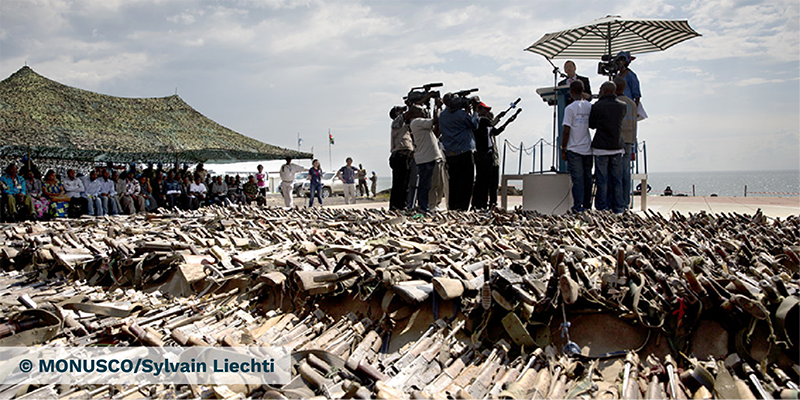What does the law say about use of force?

What does the law say about use of force?
Understanding the various forms and manifestations of the use of force in peacetime and during armed conflict
The use of force in peacetime and during armed conflicts has various forms and manifestations, and the respective international law is highly complex. High-quality analysis of conflicts and effective policymaking is not feasible without mastering the respective legal landscape. It is therefore necessary to incorporate law into decision-making as a means of shaping the global future.
For the 3rd year in a row, the GCSP ran the “Legal Dimensions of Contemporary and Future Use of Force” in Geneva, from 28 to 30 October 2019. The course, led by Mr Tobias Vestner, Head of Security and Law, was attended by 26 participants from 19 different countries.
Participants came from all continents, most of them coming from Africa and the Middle East, such as United Arab Emirates, Iraq, Jordan, Mali or Egypt, including senior-level diplomats and government officials, as well as military and police officers. The diversity of nations and breadth of expertise in the room created a unique atmosphere and learning-environment and was optimal to fully realising “the GCSP Way” to the benefit of all.
The three-day course offered training on the international legal rules applicable to the use of force in peacetime and armed conflict, including the challenges facing drone strikes, cyber and space security.
Particularly stimulating were the engagements of Brigadier General Richard Gross, United States Army (Retired) and Prof. Dr Stuart Casey-Maslen, who accompanied the course throughout. Their experience, expertise and interactive teaching interlinked the various subjects of the course and engaged the participants. Further, Dr Christina Schori Liang, Head of Terrorism and PVE at the GCSP, held a presentation on current and future trends of terrorism, which served as basis for following discussions about legal challenges regarding terrorist organisations and non-state actors. Finally, GCSP Executive-in-Residence with the Global Fellowship Initiative, Mr Ralph Mamiya, shared his extensive experience in working for the United Nations in protection of civilian matters, including serving in the UN Mission in Sudan and the UN Mission in South Sudan.
In the words of one of our course participants: “If you are looking for a course that has a mixture of academic point of view and policy maker point of view, GCSP is definitely the place. Never failed to do that!”
The GCSP will continue to engage its new alumni and wishes them much success in their careers. The Security and Law team is proud to foster a better understanding and implementation of international law in the security realm, both through its executive education courses and its event series Security and Law: A Reality Check.
Next edition will take place from 26 to 28 October 2020. For more information and registration click here.

